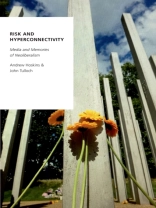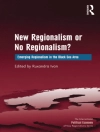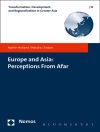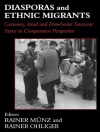Risk and Hyperconnectivity brings together for the first time three paradigms: new risk theory, neoliberalization theory, and connectivity theory, to illuminate how the kaleidoscope of risk events in the opening years of the new century has recharged a neoliberal battlespace of media, economy, and security. Hoskins and Tulloch argue that hyperconnectivity is both a conduit of risk and a form of risk in itself, and that it alters the ways in which we experience events and remember them. Through interdisciplinary dialogue and case study analysis they offer original perspectives on the key questions of risk of our age, including: What is the path to a ‘balance’ between individual privacy and state (or corporate) security? Is hyperconnectivity itself a new risk condition of our time? How do remembering and forgetting shape citizen insecurity and cultures of risk, and legitimize neoliberal governance? How do journalists operate as ‘public intellectuals’ of risk?Through probing a series of risk events that have already scarred the twenty-first century, Hoskins and Tulloch show how both established and emergent media are central in shaping past, present and future horizons of neoliberalism, while also propelling wide pressure for its alternatives on those ranging from economics students worldwide to potential political leaders cultivated by austerity policies.
Andrew Hoskins & John Tulloch
Risk and Hyperconnectivity [PDF ebook]
Media and Memories of Neoliberalism
Risk and Hyperconnectivity [PDF ebook]
Media and Memories of Neoliberalism
Koop dit e-boek en ontvang er nog 1 GRATIS!
Taal Engels ● Formaat PDF ● Pagina’s 272 ● ISBN 9780199375516 ● Uitgeverij Oxford University Press ● Gepubliceerd 2016 ● Downloadbare 3 keer ● Valuta EUR ● ID 5282333 ● Kopieerbeveiliging Adobe DRM
Vereist een DRM-compatibele e-boeklezer












